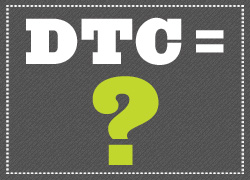Many big changes will come to the pharmaceutical industry in 2013, and one of the most notable is the likely reduction in direct-to-consumer spending. According to a new report from Cegedim Strategic Data, DTC promotional spending declined 22% from 2011 to 2012.[1] In fact, they reported that “spending in nearly every channel saw a decline year over year in 2012, the only exception being direct mail.” I expect DTC marketing to continue to decline in 2013 due to a number of factors.
1. The Patent Cliff 
While the patent cliff has always existed, countless blockbuster drugs that spend heavily on DTC will soon be available as generics. This will effectively eliminate marketing for big-spending on many DTC products, like Lilly’s Cymbalta, AstraZeneca’s Nexium, and Sunovion’s Lunesta.
2. Ineffective TV Advertising
Perhaps the simplest reason for the shift away from DTC marketing is the fact that TV ads are becoming less and less effective. People have learned to flip to other channels or complete other quick tasks during commercials as opposed to paying attention to them. Additionally, the laundry list of warnings that must be presented during these ads make many medicines seem like they are less safe and more risky than they actually are. Other media such as internet marketing have proven to be valuable allies of modern marketers, and marketing in the pharmaceutical industry is no different. Online ads, social media, and other highly targeted internet marketing techniques have allowed the pharmaceutical industry to spread its messages to the right crowd at a fraction of the price. However, even these efforts seem to be waning.
3. Consumers are More Educated
Consumers no longer rely solely on their doctor’s recommendations. When people have a concern about their health, they still schedule an appointment with their doctor, but they also check the internet to learn what other experts think and to further evaluate their choices. Patients want to thoroughly understand their treatments and the medications that accompany them. As more and more treatment options become available, it has become imperative for pharmaceutical and medical device companies to connect with health care providers and have a solid peer-to-peer marketing strategy.
DTC has a solid place within the pharma marketing mix, but until marketers find new ways to increase consumer engagement, the uphill battle will continue. However, one thing is for sure, patients are always going to consider physician opinion as a strong influencer in their decision-making process.
[1] Meyer, Richard. 7 Reasons Why DTC Drug Marketing Will Decline in 2013. Kevinmd.com. http://www.kevinmd.com/blog/2013/03/7-reasons-dtc-drug-marketing-decline-2013.html. March 30, 2013. July 29, 2013.





